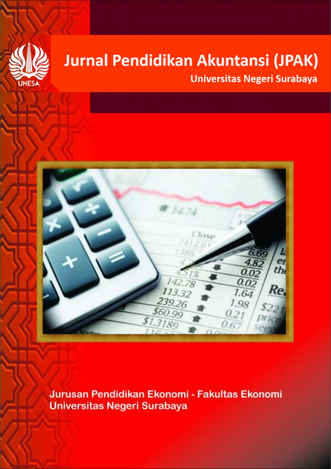Pengaruh Pemanfaatan Teknologi Informasi, Pengetahuan Perpajakan, Dan Sanksi Pajak Terhadap Kepatuhan Wajib Pajak Orang Pribadi
DOI:
https://doi.org/10.26740/jpak.v9n2.p262-272Keywords:
Taxpayer compliance; tax knowledge; tax sanctions; information technologyAbstract
The largest state revenue comes from taxes obtained from public contribution. If tax revenue tend to decline, then national development will be hampered. Because of this, the taxpayer compliance to pay taxes must be further improved. This study was held to analyze and determine the effect of model variables on individual taxpayer compliance. The approach used in this research is a quantitative approach by testing and analyzing the effect of the use of information technology, tax knowledge, and tax sanctions on individual taxpayer complianceat KPP Pratama Surabaya Wonocolo. Individual taxpayers who pay and report their tax at KPP Pratama Surabaya Wonocolo are used a population, with the sample is individual taxpayers whom the researcher meets accidentally and suitable as a data source. Based on the results of the t test, it is known that the information technology utilization variable has no and insignificant effect on individual taxpayer compliance, while the other independent variables, namely tax knowledge and tax sanctions have a positive and significant effect on individual taxpayer compliance. Likewise with the result of the f test which shows that the use of information technology, tax knowledge, and tax sanctions simultaneously has a positive and significant effect on individual taxpayer compliance.
Downloads
Downloads
Published
How to Cite
Issue
Section
License
Authors who publish with this journal agree to the following terms:
- Authors retain copyright and grant the journal right of first publication with the work simultaneously licensed under a Creative Commons Attribution License that allows others to share the work with an acknowledgement of the work's authorship and initial publication in this journal.
- Authors are able to enter into separate, additional contractual arrangements for the non-exclusive distribution of the journal's published version of the work (e.g., post it to an institutional repository or publish it in a book), with an acknowledgement of its initial publication in this journal.
- Authors are permitted and encouraged to post their work online (e.g., in institutional repositories or on their website) prior to and during the submission process, as it can lead to productive exchanges, as well as earlier and greater citation of published work (See The Effect of Open Access).

Jurnal Pendidikan Akuntansi (JPAK) is licensed under a Creative Commons Attribution-NonCommercial 4.0 International License.
 Abstract views: 2371
,
Abstract views: 2371
, PDF Downloads: 2324
PDF Downloads: 2324



